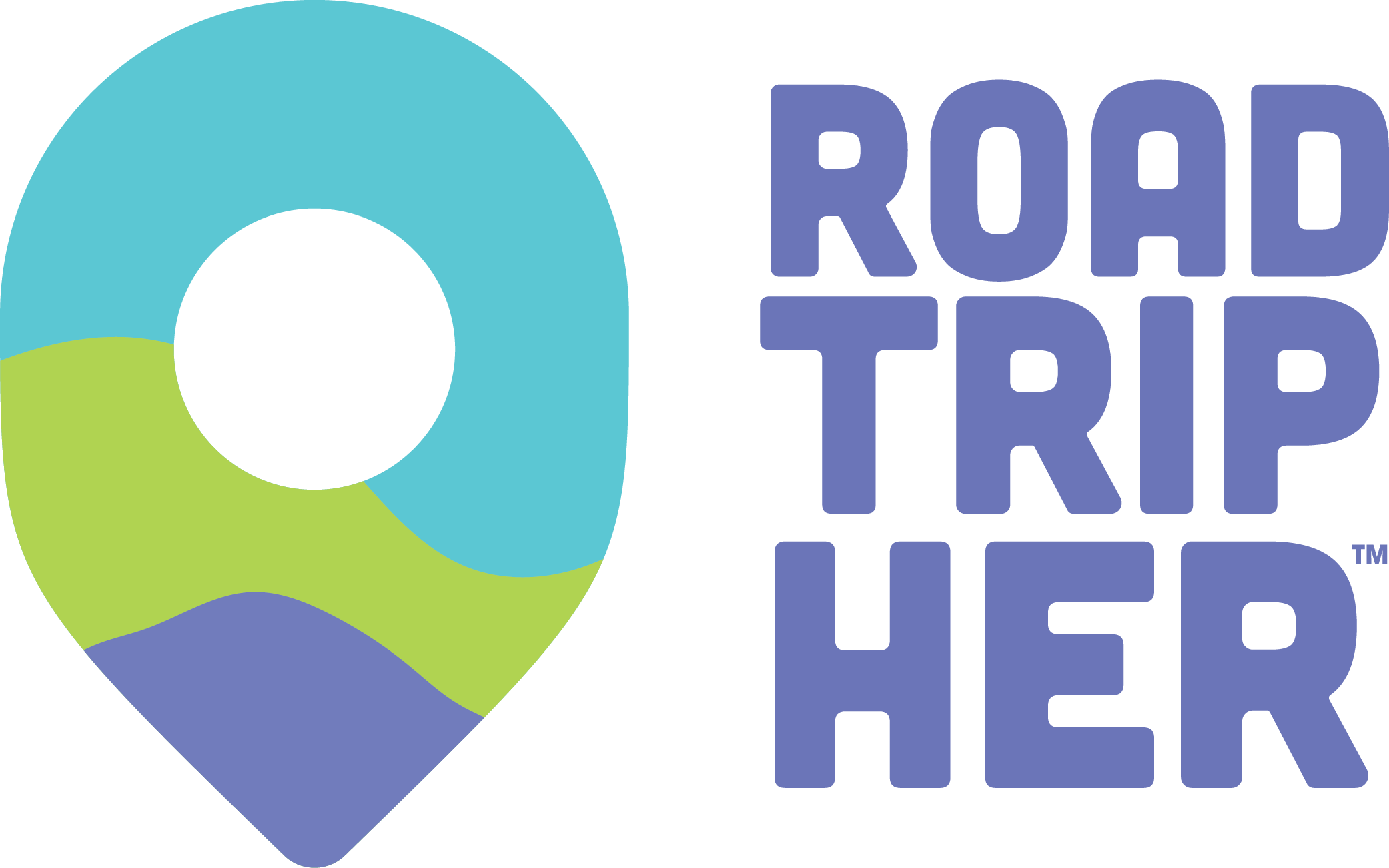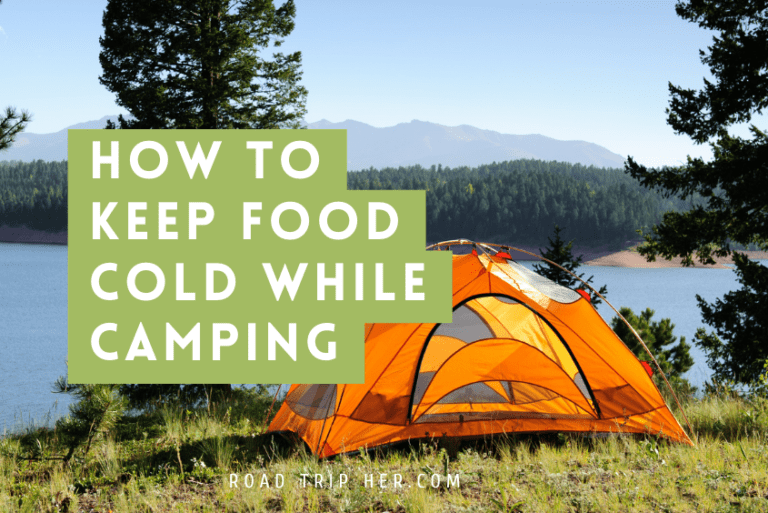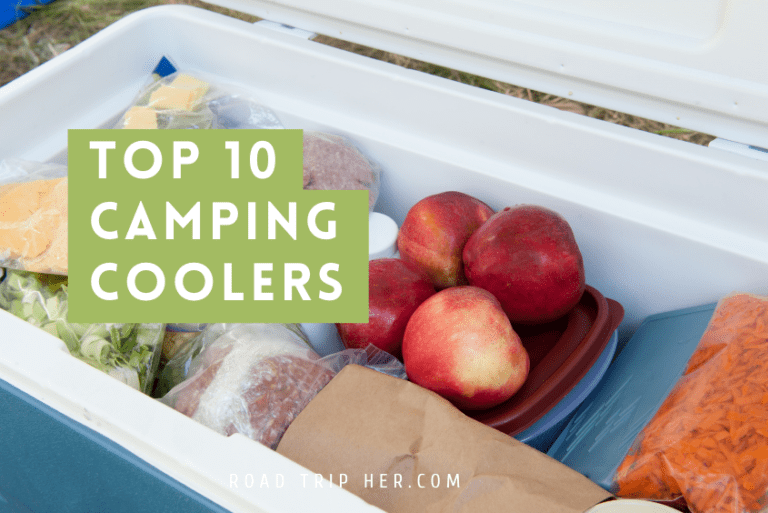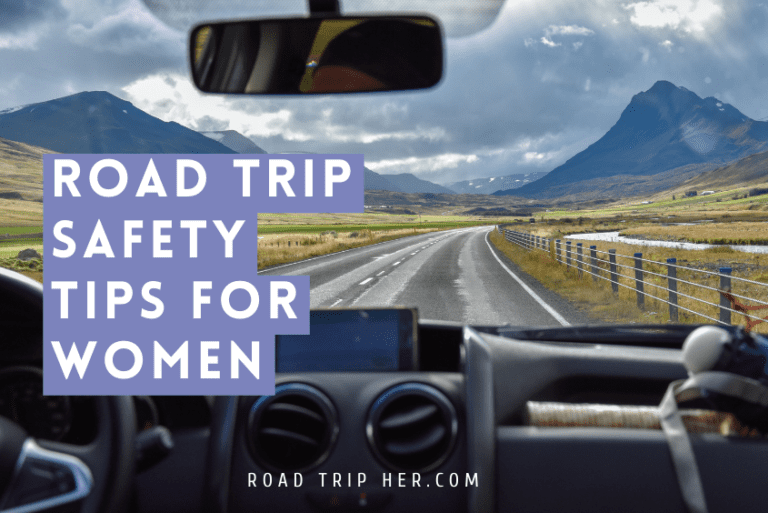How Much Water Should I Bring Camping?
Whether you’re embarking on a day trip or planning a longer adventure, there’s one essential item that should always be at the top of your camping checklist: water. How much water should you bring? The answer depends on several factors, such as the duration of your trip, the number of campers, and the planned activities.
In this blog, I’ll dive into the importance of water while camping, how to estimate the amount of water needed, and strategies to conserve water. So, let’s get started and ensure you have plenty of water for your next camping trip!
Contents
- The Importance of Water while Camping
- Estimating the Amount of Water Needed for a Camping Trip
- Factors Influencing the Quantity of Water to Bring While Camping
- Overcoming the Challenge of Bringing Excessive Water
- Ways to Limit Water Usage during Camping Trips
- Exploring Alternative Water Resources While Camping
- How Can One Stay Hydrated without Overpacking Water?
- Conclusion
The Importance of Water while Camping
Water is a survival essential, regardless of the duration of your camping trip. As an avid camper, I’ve had my fair share of close calls where I underestimated the amount of drinking water I needed.
So now, I prioritize water as the first thing I pack for any camping trip. Not only is water necessary for hydration, but it also plays a crucial role in maintaining overall health. Without enough water, your body can quickly become dehydrated, leading to fatigue, dizziness, and even heat exhaustion. That’s why it’s essential to plan ahead and bring plenty of water to properly hydrate yourself while camping.
Water as a Survival Essential
When it comes to surviving in the great outdoors, water is at the top of the list of necessities. Whether you’re camping in the backcountry or at a developed campground, having enough drinkable water is vital.
The amount of water you’ll need depends on several factors, such as the duration of your trip, the number of campers, the weather conditions, and the level of physical activity.
A general rule of thumb is to drink at least half a gallon of water per day, but this can vary based on individual needs. If you’re engaging in moderate activity, such as hiking or biking, you may need closer to a gallon of water per day to stay properly hydrated.
It’s always better to have more water than you think you’ll need, as dehydration can have serious consequences, especially in remote camping locations where water sources may be limited.
The Role of Water in Maintaining Health
Staying hydrated is not just important for survival; it also plays a crucial role in maintaining your overall health while camping. When you’re out in the elements, especially in warm weather, your body loses water through sweat, and it’s essential to replenish those fluids.
Drinking enough water throughout the day can help prevent dehydration, which can lead to fatigue, decreased cognitive function, and even heatstroke. Additionally, water aids in digestion, regulates body temperature, and helps transport nutrients to cells.
Without enough water, you may experience digestive issues, muscle cramps, and decreased energy levels, which can put a damper on your camping experience. So, make hydration a priority and drink plenty of water to keep your body functioning at its best in the great outdoors.
Estimating the Amount of Water Needed for a Camping Trip
Now that we understand the importance of water while camping, let’s dive into how to estimate the amount of water needed for your trip. The key is to consider the number of campers, the duration of the trip, and the activities you have planned.
A general guideline is to bring at least one gallon of water per person, per day. If you’re camping as a group, remember to account for the water needs of each individual. For longer trips, it’s better to overestimate than underestimate, as you don’t want to find yourself running out of water in the middle of your camping adventure. And if you’re backpacking, the weight of water can add up quickly, so it’s crucial to strike a balance between having enough water and not overpacking.
Calculating Water Consumption for Drinking
When it comes to drinking water, the amount you’ll need can vary depending on factors such as temperature, activity level, and personal hydration needs. To calculate how much water to drink, consider the following:
- Drink at least half a gallon of water, or about eight glasses, per day as a general rule of thumb.
- If the weather is hot, increase your water intake to a gallon or more.
- Increase water consumption if you’re engaging in moderate activity, such as hiking or biking, especially in warm weather.
- Consider the length of your trip and plan to have enough water for each day, including extra water in case of emergencies.
- Invest in a portable water filter or water purification tablets to ensure a safe source of drinking water when camping in remote locations.
- Estimating water consumption for drinking involves calculating the gallons of water needed based on the number of campers, the duration of the trip, and the level of physical activity. Here are a few tips to help you determine how much water to bring:
- For day hikes, plan to drink at least one liter of water per hour of moderate activity.
- When camping overnight, aim for a gallon of water per day, per person.
- If the weather is hot or you’re engaging in strenuous activities, increase your water intake accordingly.
- By estimating your drinking water needs, you can ensure you have enough water to stay hydrated throughout your camping trip.
Estimating Water Required for Cooking
In addition to drinking water, it’s important to consider the amount of water required for cooking during your camping trip. The quantity of water needed for cooking can vary depending on the meals you plan to prepare and the cooking methods you’ll use. Here are a few factors to consider when estimating the water required for cooking:
- Determine the total volume of water you’ll need based on the number of meals you plan to cook and the recipes you’ll be following.
- Be mindful of the cooking methods you choose, as some techniques, such as using dehydrated food or one-pot cooking, require less water.
- Consider the amount of water needed to rehydrate dehydrated food, such as backpacking meals or oatmeal, as these foods can absorb a significant amount of water.
- Plan for extra water if you’ll be cooking in hot weather, as hydration for cooking purposes may increase due to increased sweat loss.
Allocating Water for Hygiene Purposes
Maintaining personal hygiene during camping trips is essential for overall comfort and cleanliness. Water consumption for hygiene purposes may vary depending on personal habits, trip duration, and available facilities. When allocating water for hygiene, consider the following:
- Estimate the gallons of water needed for personal hygiene by factoring in the number of campers, trip duration, and personal hygiene routines.
- Prioritize essential hygiene needs, such as handwashing, brushing teeth, and cleaning cooking utensils.
- Consider the availability of water sources at the campsite, as access to natural water bodies, sinks, or portable shower facilities can impact the amount of water you need to bring.
- Opt for water-saving hygiene practices, such as using wet wipes or biodegradable hygiene products, to conserve water resources.
- Limit water usage by managing shower time, ensuring efficient water flow, and practicing water conservation techniques.
- By planning and allocating enough water for hygiene, you can maintain cleanliness and personal well-being during your camping experience.
Factors Influencing the Quantity of Water to Bring While Camping
Now that we’ve covered the basics of estimating water needs, let’s explore the factors that can influence the quantity of water you should bring while camping. Understanding these factors will help you make informed decisions about the amount of water to pack for your trip. Consider the following:
Consideration of Activity Level
The level of activity planned for your camping trip plays a significant role in determining your water consumption. Physical exertion, whether it’s hiking, biking, or participating in other outdoor activities, increases the body’s water needs. To stay properly hydrated, keep the following in mind:
- Estimate how much water you’ll need based on the intensity and duration of the activities you have planned.
- As a general guideline, drink at least one liter of water per hour of moderate activity.
- Increase your water intake during intense activities or when the weather is particularly hot.
- Listen to your body’s thirst cues and drink water whenever you feel the need to, even if you’re not engaging in rigorous physical activity.
The Impact of Weather and Humidity
Weather conditions, including temperature and humidity, greatly influence the amount of water you’ll need while camping. If you’re camping in hot or humid climates, you’ll likely require more water to stay hydrated. Consider the following:
- Hot temperatures and high humidity levels can increase water needs due to increased sweating.
- Plan to drink extra water during the hottest parts of the day and in direct sunlight, when the body loses water more rapidly.
- Be mindful of the additional water needs for hydration if the weather is particularly warm or you’re camping in a desert or tropical environment.
- Pack extra water bottles or consider a larger water reservoir if you anticipate camping in hot and humid conditions.
The Effect of Elevation on Water Need
Camping at higher elevations can have an impact on your water needs. As you ascend to higher altitudes, the environmental conditions change, potentially affecting your body’s hydration level. Here are a few factors to consider:
- Higher elevations can lead to increased water needs due to increased breathing rates and the potential for increased sweat loss.
- When camping at higher altitudes, drink water consistently throughout the day to prevent dehydration.
- Consider the gallons of water needed if camping at higher elevations for an extended period, as the increased water needs can persist, even during periods of rest.
Assessing Water Consumption based on Alcohol Consumption
If you plan on enjoying alcoholic beverages while camping, it’s crucial to also consider the additional water needs associated with alcohol consumption. Alcohol can dehydrate the body, so drinking extra water is important to maintain hydration. Keep the following in mind:
- Alcohol consumption increases the body’s water needs, as it acts as a diuretic, causing increased urine production.
- To counter the dehydrating effects of alcohol, alternate alcoholic beverages with water, aiming to drink at least one glass of water for every alcoholic drink consumed.
- Pack extra water bottles or water purification tablets to easily access clean drinking water while camping and to replenish fluids lost due to alcohol consumption.
Overcoming the Challenge of Bringing Excessive Water
Bringing enough water for your camping trip is essential, but it can be a challenge, especially if you’re car camping and have limited space. However, there are several strategies you can employ to manage hydration without overpacking water. Let’s explore some approaches to address this challenge effectively.
Strategies to be Carpooling Friendly
If you’re car camping and carpooling with other campers, combining water supplies can help distribute the load. Here’s how you can stay carpooling-friendly when it comes to water:
- Coordinate water needs with fellow campers to avoid unnecessary duplication of water supplies.
- Plan to share water bottles or large water containers, such as water jug refills, to avoid the need for each camper to bring their own water supply.
- Allocate water bottles for individual campers, ensuring everyone has enough water bottles to meet their personal hydration needs but not excess bottles that take up space.
Investing in Appropriate Gear to Carry Water
Investing in the right gear can make carrying water during camping trips much more manageable. Consider the following options:
- Hydration backpacks: These backpacks come with built-in water bladders, allowing you to carry a significant amount of water while keeping your hands free.
- Portable water purifiers: Investing in a portable water filter or purification tablets allows you to access water from natural sources, reducing the need to carry large quantities of water.
- Water bottles with filters: Opting for water bottles equipped with filters enables you to drink water from various sources, ensuring clean water supply without the need for bulky water containers.
Ways to Limit Water Usage during Camping Trips
While it’s important to bring enough water for your camping trip, conserving water is equally essential, especially if you’re camping in areas where water resources may be limited. Let’s explore some effective ways to limit water usage and practice water conservation during your camping trips.
Efficient Cooking Techniques
Minimizing water usage while cooking is a practical way to conserve water during camping trips. Consider the following efficient cooking techniques:
- Opt for cooking methods that require less water, such as one-pot cooking, where multiple ingredients are cooked together, or steam cooking, which uses less water compared to boiling.
- Utilize dehydrated food, which requires minimal water for rehydration, as it helps reduce the amount of water needed for cooking meals.
- Pre-soak grains, beans, or other ingredients overnight, which can reduce cooking time and water consumption, especially for foods that require longer cooking periods.
Water Conservation Tips for Personal Hygiene
Practicing water conservation during personal hygiene routines can significantly reduce water consumption during camping trips. Consider the following tips:
- Use wet wipes or camping-specific hygiene products, which require less water compared to traditional cleaning methods.
- Time your showers and limit the amount of water used, especially when camping in areas with limited water resources. Portable shower systems, such as solar showers, are designed to conserve water while providing enough for personal hygiene needs.
- Utilize biodegradable hygiene products, ensuring minimal environmental impact and reducing the amount of water needed for cleaning purposes.
Exploring Alternative Water Resources While Camping
While bringing enough water is crucial, exploring alternative water resources can provide additional supply options and reduce the need to carry excessive water. Let’s dive into a few alternatives for sourcing water while camping.
Nature as a Source of Water
Nature offers abundant water sources that can supplement or even replace the need for carrying large quantities of water. Keep the following in mind:
- Streams, rivers, or lakes: These natural water bodies can serve as reliable water sources, ensuring a continuous supply of water throughout your camping trip.
- Rainwater: Collecting rainwater during periods of rainfall can provide an additional water source, especially if camping in areas with regular precipitation.
- Bring a portable water filter or water purification tablets to ensure the water from natural sources is safe for drinking.
- Investigate the availability of natural water sources near your campsite before the trip, and plan your water supply accordingly.
How Can One Stay Hydrated without Overpacking Water?
In the quest to find the balance between hydration and pack weight, there are several strategies you can employ to ensure you stay hydrated without overpacking water. Here are some tips to help you achieve that balance:
- Invest in lightweight and collapsible water bottles, which take up less space when empty, yet provide ample water storage capacity.
- Make use of hydration bladders that can be attached to the exterior of your backpack, freeing up space inside for additional camping gear.
- Utilize water purifiers or purification tablets to access natural water sources, reducing the need to carry excessive water on longer trips.
- Plan water resupply points along hiking routes, ensuring you have enough water for each segment of your journey without carrying the entire trip’s supply at once.
- Prioritize portable water purification devices or water filters in your gear list, allowing you to treat water from various sources without the need for extra water containers.
Conclusion
In conclusion, it is crucial to prioritize water when planning a camping trip. Water is not only essential for survival but also plays a vital role in maintaining health. To estimate the amount of water needed, consider factors such as the duration of the trip, the number of people, and the activities involved. It’s important to allocate enough water for drinking, cooking, and hygiene purposes.







